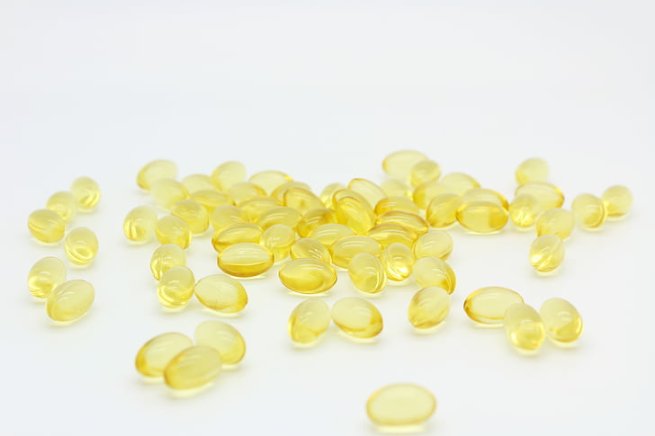Low light reading, a diet that skipped vitamin A a few times, genetics, and aging—these are ways that affect eye health. Luckily, you can work your way toward improvement in vision, if it’s aging that leads to deteriorating eye health. A convenient way to accomplish this is fish oil supplements.
Rich in omega 3 fatty acids, fish oil offers plenty of benefits for better vision and optimal eye health. While fish is a natural source of this vital nutrient, fish oil supplements are a superior alternative in case you’re allergic, don’t like seafood, or need to take your omega 3s in a more targeted way.

Table of Contents
Why Prioritize Fish Oil For Your Eyes
When it comes to eye health, all ages can benefit by taking omega 3 best fish oil supplement. These capsules are full of fatty acids eicosapentaenoic acid (EPA) and docosahexaenoic acid (DHA). Omega 3 fatty acids not only improve your vision and overall eye health but also contribute to brain development, and heart health, and help alleviate symptoms of various chronic diseases.
In other words, with the addition of one simple supplement to everyday routine, you get a ton of health benefits.
How Does Fish Oil Work Its Way To Great Eye Health?
The primary reason why your eye can gain these is because your retina’s structure actually has abundant levels of DHA. Think of fish oil as a literal way to feed healthy nutrients to your eyes. Fish oil also enhances the parts of your eye that generate tears and elevates hydration. Hence the reason it is said to play a vital role in lowering the risk of macular degeneration.
However, these advantages are just a starting point when we talk about the eye benefits of fish oil. If you find that your diet lacks sufficient omega 3, you need to find a supplement that suits your needs and preferences and start taking it ASAP. Liquid fish oil, gelatin softgels, or multivitamin capsules—all of these are convenient to add to your dietary regime.
The sooner you add fish oil to your diet, the sooner you start caring for your eyes. How?
Top 5 Eye-Related Benefits Of Fish Oil
The fatty acids in fish oil not only gift your gut with super nutrients but also may lower the chances of eye ailments. The primary ways these nutrients promote eye health are:
1. Improves Vision Significantly
Fish oil is often recommended at the earliest life stages, as early as the fetal stage. Also, babies and toddlers need omega 3 to aid their growing vision and overall eye health. Hence the treason most fortified baby formulas contain DHA.
The right dose of fish oil will benefit your eyes during adulthood and older age, especially when aging takes a toll on vision. Taking a supplement each night after a meal—unless it contradicts with another medicine—can work wonders for refreshing eyesight.
2. Soothes Dry Eyes
Dry eye is a complex condition that unfortunately cannot be completely cured. However, by addressing the inflammation, you can make significant changes in alleviating some of the symptoms.
Omega 3 in fish oil has anti-inflammatory effects for all vital organs of your body—which is what makes it effective for chronic diseases. Adding this supplement into your routine can have a positive impact on the function of the meibomian glands in your eyes. These glands are responsible for producing the oily component of tears. Consequently, when they function better, it can greatly ease dry eye symptoms.
3. Lowers Progression Of AMD
Age-related macular disease (AMD) is when our macula—i.e. the light-sensitive tissue in your retina—weakens due to aging. The benefits of fish oil extend beyond just dry eye; it can potentially inhibit the growth of abnormal blood vessels that are often associated with age-related macular degeneration.
Moreover, medical studies reveal that consuming the right amount of EPA and DHA can have a positive impact on age-related macular degeneration, hindering its risk by nearly 30%. However, you should know that fish oil supplements alone cannot be a treatment for AMD. If you have a history of AMD in your family, consult an ophthalmologist who can provide you with targeted medication.
4. Minimizes Risk Of Glaucoma
Intraocular fluid buildup in your eye increases the fluid pressure of the eye, causing nerve damage. This condition, known as glaucoma, is usually affected by omega 3, which promotes the proper drainage of the fluid.
As a result, you’re at less risk of high eye pressure, which is also associated with conditions vision loss. As studies show, when you stick to a regular intake of omega 3, it can be lower the fluid pressure. The results are quite incredible, as you may feel a difference in your eyes in as less as three months time!
5. Helps With Blue-Ray Eye Strain
Have you been spending too much time in front of screen? You may be experiencing one of the main side effects of doing so—eye strain. From heaviness and discomfort to blurred vision, there are many ways excessive screen time affects your eyes. Lucky for you, research points towards fish oil as one of the supplements that benefit eye health. Omega 3 can help ease eye strain, especially when you take it in doses of more than 1 gram of EPA and DHA combined every day.
Therefore, if you are struggling with eye strain while working with screens, consider increasing your omega 3 intake. High-quality fish oil supplements can make a superb difference!
Bottom Line: Fish Oil For Sharp Eyes!
The verdict is clear—fish oil supplements are a massive help when you’re aim to meet your omega 3 needs for eye health. It’s crucial to select a reputable brand of fish oil to guarantee the utmost safety and effectiveness.
As for the dose, make sure to check the packaging to see how much EPA and DHA are in each bottle of fish oil softgel or capsule. Another option to consider is a direct liquid form of fish oil. A teaspoon of fine fish oil usually contains 1200 mg of EPA and 300 mg of DHA. This is equivalent to taking 4 gel capsules.
For those dealing with dry eye syndrome, starting with this daily dose is generally a good idea. For elders, a lower dosage may be ideal to help with absorption as well as avoid any interactions with other medications.




